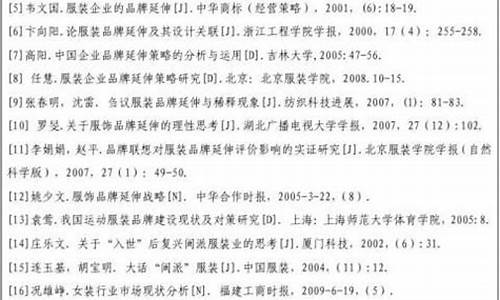您现在的位置是: 首页 > 高考调剂 高考调剂
高考动词828个-高考专考动词
tamoadmin 2024-09-09 人已围观
简介1.请列举下高考常考的英语不及物动词和用法2.求江苏英语高考常见的短语,最好是动词+介词的类型。3.高考英语词组常考的高频固定搭配汇总4.高考英语语法: 接不定式和动名词含义相同的动词请列举下高考常考的英语不及物动词和用法英语中按动词后可否直接跟宾语,可把动词分成及物动词和不及物动词。不及物动词:字典里词后标有vi. 的就是不及物动词。不及物动词后不能直接跟有动作的对象(即宾语)。若要跟宾语,必须
1.请列举下高考常考的英语不及物动词和用法
2.求江苏英语高考常见的短语,最好是动词+介词的类型。
3.高考英语词组常考的高频固定搭配汇总
4.高考英语语法: 接不定式和动名词含义相同的动词
请列举下高考常考的英语不及物动词和用法

英语中按动词后可否直接跟宾语,可把动词分成及物动词和不及物动词。
不及物动词:字典里词后标有vi. 的就是不及物动词。不及物动词后不能直接跟有动作的对象(即宾语)。若要跟宾语,必须先在其后添加上某个介词,如to,of ,at后方可跟上宾语。具体每个动词后究竟加什么介词就得联系动词短语了.
常用的不及物动词
ear ,Appear calm
come ,Come easy (safe)
go ,Go mad (crazy, bad, sour, wrong, crazy, hungry, blind)
get ,Get angry (ill, wet, excited, married, paid)
fall ,Fall asleep( fall ill, fall short, fall flat)
feel ,Feel good (sleepy)
keep ,Keep quiet (silent)
look ,Look fit (well, young, tired)
make, Make certain (sure, ready, a good teacher)
prove ,Prove an effective method (correct, accurate)
remain ,Remain still (unchanged)
rest,Rest satisfied (content)
rise, Rise red
seem ,Seem hy
stand ,Stand still
stay ,Stay young (stay fresh, the same)
turn, Turn teacher =become a teacher (yellow)
turn out ,Turn out true
用法举例
Look carefully! (注意:carefully 是副词,不是名词,故不作宾语)
look at 看…….+宾语 Look at me carefully! (me是代词,作宾语)
(at是小范围 in是大范围)
如: The students work very hard.学生们很努力地学习。
She apologized to me again. 她再次向我道歉。
The accident hened yesterday evening.昨天晚上发生了事故。
与及物动词的区别
及物动词与不及物动词的区别从是否需要宾语来分,实义动词分为及物动词和不及物动词两类。
1)及物动词 后面必须跟宾语意义才完整的实义动词,叫做及物动词(transitive verb)。如: I believe that the committee will consider our suggestion.我相信委员会将会考虑我们的建议。
“How long can I keep the book ?”Harry asked.哈里问:“这本书我可以借多久?”
2)不及物动词 本身意义完整后面不须跟宾语的实义动词,叫做不及物动词(intransitive verb)。如: Birds fly.鸟会飞。
It hened in June 1932.这件事发生于一九三二年六月。
My watch stopped.我的表停了。
She spoke at the meeting yesterday evening. 她在昨天晚上的会上发了言。
3)兼作及物动词和不及物动词 英语里有不少实义动词可以兼作及物动词和不及物动词。这样的动词又有两种不同的情况:
a)兼作及物动词和不及物动词时,意义不变。试比较:
Shall I begin at once?我可以立刻开始吗?(begin作不及物动词)
She began working as a librarian after she left school.她毕业后当图书馆管理员。(begin作及物动词)
When did they lee Chicago?他们是什么时候离开芝加哥的?(lee 作及物动词)
They left last week. 他们是上周离开的。(left 作不及物动词)
b)兼作及物动词和不及物动词时,有时意义不尽相同。如:
Wash your hands before meals.饭前要洗手。
Does this cloth wash well? 这布经得起洗吗?
4) 与汉语的比较 有时英语动词的及物和不及物的用法,与汉语的用法不一样,请注意下列两种情况:
a)有的动词在英语里只能用作不及物动词,而汉语则可用作及物动词,如arrive到达,agree同意,1isten听。英语里这些动词后面常接介词。如:
We arrived at the railway station at noon.我们于中午到达火车站。(at不能省去)(比较:We reached the railway station at noon.)
Everybody listened to the lecture with great interest.每个人都很有兴趣地听讲课。(to不可省去)(比较:We all heard the lecture.)
Do they agree to the plan?他们同意这个吗?(to不可省去)
b)有的动词在英语里能用作及物动词,而在汉语里则不能用作及物动词,如serve为…服务。 Our children are taught to serve the people wholeheartedly.我们的儿童被教以全心全意为人民服务
及物动词后可以加宾语,不及物动词后不可以加宾语
动词的及物不及物是在英语学习中必须解决的首要问题。动词及物与不及物通常有以下几种情况:
a.主要用作及物动词。及物动词后面必须跟宾语。可以用于:"主+谓+宾";"主+谓+双宾";"主+谓+宾+宾补"结构。如:
He reached Paris the day before yesterday.
Please hand me the book over there.
They asked me to go fishing with them.
类似的还有:buy, catch, invent, found, like, observe, offer, prevent, promise, raise, find, forget, receive, regard, see, say, seat, supply, select, suppose, show, make, take, tell.... b.主要用作不及物的动词。不及物动词后面不跟宾语。只能用于:"主+谓"结构。
This is the room where I once lived.
类似的还有:agree, go, work, listen, look, come, die, belong, fall, exist, rise, arrive, sit, sail, hurry, fail, succeed....
c.既可以用作及物又可以用作不及物的动词,其意义不变。如begin 都是作"开始"讲。everybody , our game begins. let us begin our game.
类似的还有:start, answer, sing, close, consider, insist, read, learn, prepare, pay, hurt, improve....
d.既可以用作及物又可以用作不及物的动词,其意义完全不同。
这类动词作不及物动词是一个意义;而作及物动词时却是另一个意义。如lift作不及物动词时是指烟雾的"消散"。we saw the mountain when the clouds lifted. 作及物动词时是"升高;举起"。 He lifted his glass and drank.
类似的还有:beat vi.跳动 vt. 敲、打; grow vi.生长 vt. 种植 play vi.玩耍 vt. 打(牌、球),演奏 smell vi.发出(气味) vt. 嗅 ring vi.(电话、铃)响vt.打电话 speak vi.讲话 vt. 说(语言) hang vi. 悬挂 vt. 绞死 operate vi.动手术 vt. 操作
需要注意的一点是:少数不及物动词唯一可跟的宾语是同源宾语,如:I dreamed a dream last night.
求江苏英语高考常见的短语,最好是动词+介词的类型。
您好,希望对你有帮助。
高考常用动词短语归纳:
look 的常用短语:look up … in查找
look sb. up and down 上下打量
look back to/ upon回顾
look upon…as把… 看作
look forward to期待
look through浏览; 看穿
take a new look呈现新面貌
fear的常用短语:in fear害怕地
(be) in fear of 害怕
for fear of/ that担心;生怕
concentrate 的常用短语:concentrate on 专心…
concentrate one’s mind on 专心于…
类似的短语:
fix one’s mind upon
focus on
put one’s heart into
focus one’s mind on
surprise常用短语:in surprise惊讶地
to one’s surprise 使某人惊讶的是
be surprise at/to do/that
对某事感到惊讶
表示“穿衣”的动作或状态的词和短语1.表示动作的有:
pull on
put on
dress
dress sb
2. 表示状态的有:
wear
be in
be dressed in
he … on
常见表“喜欢”的短语和单词like
care for
be keen on
be fond of
take delight in…
trouble的常用短语:he much trouble / no trouble (in) doing 在…有/没有困难
take great trouble to do
不辞辛劳做某事
put sb to the trouble of doing …
为难某人做某事
make trouble捣乱
be in (great) trouble
惹麻烦;处在困境中
help sb. out of trouble
帮某人摆脱困境
end的常用短语:come to an end……结束
put an end to 结束……
on end竖起, 连续
in the end终于; 最后
end up (by) doing…以……结束
make both ends meet收支相抵
表示“导致”、“由…引起”的短语:1. 导致
cause sth. (to do)
result in
lead to
2. 由……引起
be caused by
result from
grow out of
lie in
表“全力以赴”的短语:do / try one’s best
spare no efforts to do
take great pains to do
go all out to do
do what somebody can (do) to do
do all somebody can (do) to do
direction常用短语:in (the ) direction of….朝……方向
under the direction of ...在……的指导下
follow the directions照说明去做
far常用短语:far from (being)离……要求相差很远
far from +(a place)距离某地很远
far away遥远
so far 到目前为止; 那么远
as far as sb. knows/sees据某人所知
by far
(最高级前,比较级后)起强调作用
distance常用短语:in the distance在远处
from/ at a distance从远处
keep sb. at a distance
于某人保持一定距离
It is no distance at all.不远
use常用短语:used to do过去曾经、常做
be used to doing …习惯于……
be used to do被用来做……
make good/ full use of充分利用……
come into use开始使用……
it is no use doing …干……没有用
“出了什么事”的几种不同表达What’s wrong with….?
What’s the matter with…?
What’s the trouble with…?
What hened (to sb.) ?
“众所周知”常用表达法:It is known to all that…主语从句,that不能省
As is known to all,定语从句,置于句首
We all know (that)后接宾语从句
Everyone knows (that)后接宾语从句
, which is known to all.非限定从句,置于句末
表“同意某人意见”的常用短语:agree with sb. /what sb. said
agree to sth.
rove (of) sth.
in four of sth.
be agreeable to sth.
be for sth.
“不同意”
disagree with sb./ what sb. said
object to sth.
disrove (of) sth.
be against sth.
sign的常用短语:sign one’s name签名
sign to sb (not) to do sth.
示意某人(不)做某事
signs of …
……的迹象
would rather 与 prefer 的区别1.宁愿做……而不做……
would rather do A than do B
prefer A to B
prefer to do A rather than do B
2. would rather 主语 + 过去式,表示“宁愿”
eg. I would rather you came tomorrow than today.
should prefer sb. to do sth./ should prefer 主语 + 过去式,表示“比较喜欢……”
eg. I should prefer you not to go there alone.
OR: I should prefer that you did not go there alone.
trap常用短语be caught in a trap落入圈套
be led into a trap中圈套
set a trap to do sth.设圈套……
be tred in sth.被…..所围困
grow常用短语in the grow of在….成长中
grow up长大; 成长
grow rich on靠….. 变富
grow into长成……
grow out of由…..引起/滋生出
make常用短语be made up of =consist of 由……组成
make up for弥补
be made from/ of由……造成
make up编造;组成;化妆
be made into制成……
make fun of取笑; 嘲弄
make a living 谋生
supply, provide, offer 的区别:
1.表示“向某人提供某物”
supply / provide sb. with sth.
supply / provide sth. for sb.
supply sth. to sb.
offer sb. sth.
2. 表示“主动提出做某事”
offer to do sth.
3. 表示“倘使”、“如”
provided / providing that
= on condition that
=only if
4. 表示“满足需要”supply / meet a need.
supply的常用短语in short supply 缺乏,不足
medical/military supply医疗/军用品
supplies of…许多
lack的常用短语be lacking in sth. 在……不足
make up for the lack of
弥补……的不足
for/by/from/through lack of…
由于…不足,缺乏
he no lack of不缺
damage的常用短语do damage/harm to 对……有害
cause damage to 对……造成损害
ask for damage要求赔偿
die of 与die from 的区别
die of 表示“死于……病”或冻死、气死,或死于过度悲伤。
die of cancer/grief/hunger/anger/cold
die from表示死于外伤、事故、劳累过度。如:
die from polluted air/overwork/sword thrust
die常用短语die for one’s country为国捐躯
die down熄灭、平息
die off绝种、枯死
die away消逝、静下来
die a heroic death英勇牺牲
threaten常用短语threaten sb. with sth.用……威胁某人
threaten to do…威胁做……
under the threat of…在……的威胁下
speed常用短语speed up加速
at the speed of…以…..的速度
with great speed迅速
aim常用短语take aim at瞄准
reach an aim达到目的
aim at瞄准、针对
permit与allow 的区别
表“允许做某事”或“允许某人做某事”用法基本相同。
permit/allow doing sth.
permit/allow sb. to do sth.
permit /allow of sth
一般在独立主格结构中表示“时间、条件等许可”,多用permit
Time/Weather permitting, I’ll drop in on her.
allow 还可以表示“承认”、“考虑到”。例如:
1. We allow him to be wronged.
2. will take an hour to go there, allowing for traffic delays.
means常用短语by means of通过….., 靠……
by this means/ in this way用这种方法
by no means/in no case决不
by all means用一切办法
keep常用短语keep up with紧跟…..
keep sb. doing sth.让某人一直做
keep sb. from doing sth.阻止…..做……
keep off the grass勿踏草地
keep to the point紧扣主题
keep in touch with与……保持联系
mark常用短语make one’s mark成功、出名
be marked with标明
gain/get full marks for ……得满分
seat常用短语take one’s seat坐下
he a seat请坐
see/find sb. seated看见/发现某人坐在….
be seated就座, 坐着
seat oneself in/at/on使自己坐在……
部分 动词+ to + doing 的用法
look forward to
get down to
object to
devote… to…
pay attention to
prefer…to…
give常用短语give up放弃
give in让步\屈服
give off 散发出
give away赠送、泄漏
give rise to 引起……
give out 疲劳、用完、散发出
fit常用短语be fit for适合
keep fit/keep healthy保持健康
be fit to do 适合于…..
fit in with适应……
a nice fit合身的衣服
…fit sb.某人穿….. 合身
reach 常用短语reach an agreement达成协议
reach for…伸手去拿/够……
within / out of reach够得到/够不着
reach sb’s understanding 使某人明白
feed常用短语feed sth. to sb/feed sb. on sth. 用……喂养……
be fed up of…/ be tired of…/ be bored with…
对……感到厌倦
feed on以……为食
mercy常用短语without mercy残忍地
he mercy on /upon 对……表示怜悯
at the mercy of任凭摆布
beg for mercy 乞求饶恕
exist常用短语exist in/lie in/consist in存在于……
in existence 现存的
come into existence/ come into being 形成
opinion常用短语in one’s opinion =in the opinion of sb.在某人看来
he a high/ low opinion of
对……评价高/低
give one’s opinion on
对……谈自己的看法
persuade常用短语persuade sb. to do =
persuade sb. into doing
说服某人做某事
try to persuade sb. to do
试图说服某人做某事
persuade sb. to sth.
说服某人同意某事
engage 常用短语be engaged to sb.
与某人订婚
be engaged in sth. =
be engaged doing sth.
忙于……, 从事某事
wide 与broad 的区别
它们均可以表“宽”和“广阔的”
a river 50 feet wide/ broad
指身体部位“宽肩、宽背”一般用broad, 表示
“睁大眼睛、张大嘴巴”一般用wide。
broad shoulders/ back
with wide eyes
open one’s mouth wide
wide 还可以作副词,表示“完全、大大地”
be wide awake
be wide open
sure常用短语be sure of/about
对……由把握
be sure to do sth.
肯定会……
make sure + that-clause
务必……,一定要……
make sure of…
弄清楚……
experience 常用短语he experience in…
在……有经验
be experienced in…
在……有经验
pain 常用短语take great pains to do
努力做某事
spare no pains to do
全力以赴做某事
stick 常用短语stick to sth.
坚持……
stick …on…
粘贴……
be stuck in …
陷进……
stick no bills
请勿张贴
spare 常用短语spare money/time for
省出钱…,腾出时间
in one’s spare time
在某人业余时间
spare no efforts to do
不遗余力去做
don’t spare the opinions
不要保留意见
put down的不同含义put down (one’s knife and fork) 放下……
pit down the rebellion
镇压
put down what sb. says
记下,写下
take up 的不同含义take up a hobby
培养……
take up football
开始……
take up the work
继续……
take up…time/space
消耗,占据……
take up a post
就职
take up a song/ cry
跟着一起……
habit 常用短语form/get the habit of
养成……习惯
be in/he the habit of
有…….习惯
get into the habit of
沾染了……恶习
get rid of the habit=
grow out of the habit=
break away from the habit
改掉了……习惯
高考英语词组常考的高频固定搭配汇总
今天我为大家整理的是高中英语词组固定搭配,对大家的英语学习很有帮助哦,希望大家可以好好利用起来,下面就让我们一起来看一下吧。
一、接不定式(而不接动名词)作宾语的24个常用动词
afford to do sth. 负担得起做某事
agree to do sth. 同意做某事
arrange to do sth.安排做某事
ask to do sth. 要求做某事
beg to do sth. 请求做某事
care to do sth. 想要做某事
choose to do sth. 决定做某事
decide to do sth. 决定做某事
demand to do sth. 要求做某事
determine to do sth. 决心做某事
expect to do sth. 期待做某事
fear to do sth. 害怕做某事
help to do sth. 帮助做某事
hope to do sth. 希望做某事
learn to do sth. 学习做某事
manage to do sth. 设法做某事
offer to do sth. 主动提出做某事
plan to do sth. 做某事
prepare to do sth. 准备做某事
pretend to do sth. 装做某事
promise to do sth. 答应做某事
refuse to do sth. 拒绝做某事
want to do sth. 想要做某事
wish to do sth. 希望做某事
注:有些不及物动词后习惯上也接不定式,不接动名词:
aim to do sth. 打算做某事
fail to do sth. 未能做某事
long to do sth. 渴望做某事
hen to do sth. 碰巧做某事
hesitate to do sth. 犹豫做某事
struggle to do sth. 努力做某事
二、接不定式作宾补的36个常用动词
advise sb. to do sth. 建议某人做某事
allow sb. to do sth. 允许某人做某事
ask sb. to do sth.请(叫)某人做某事
bear sb. to do sth.忍受某人做某事
beg sb. to do sth. 请求某人做某事
cause sb. to do sth. 导致某人做某事
command sb. to do sth. 命令某人做某事
drive sb. to do sth .驱使某人做某事
elect sb. to do sth. 选举某人做某事
encourage sb. to do sth. 鼓励某人做某事
expect sb. to do sth. 期望某人做某事
forbid sb. to do sth. 禁止某人做某事
force sb. to do sth. 强迫某人做某事
get sb. to do sth. 使(要)某人做某事
hate sb. to do sth. 讨厌某人做某事
help sb. to do sth. 帮助某人做某事
intend sb. to do sth. 打算要某人做某事
invite sb. to do sth. 邀请某人做某事
lee sb. to do sth. 留下某人做某事
like sb. to do sth. 喜欢某人做某事
mean sb. to do sth. 打算要某人做某事
need sb. to do sth. 需要某人做某事
oblige sb. to do sth. 迫使某人做某事
order sb. to do sth. 命令某人做某事
permit sb. to do sth. 允许某人做某事
persuade sb. to do sth. 说服某人做某事
prefer sb. to do sth. 宁愿某人做某事
request sb. to do sth. 要求某人做某事
remind sb. to do sth. 提醒某人做某事
teach sb. to do sth .教某人做某事
tell sb. to do sth. 告诉某人做某事
train sb. to do sth. 训练某人做某事
trouble sb. to do sth. 麻烦某人做某事
want sb. to do sth. 想要某人做某事
warn sb. to do sth. 警告某人做某事
wish sb. to do sth. 希望某人做某事
注:不要受汉语意思的影响而误用以下动词句型:
汉语说:“害怕某人做某事”,但英语不说fear sb. to do sth.。
汉语说:“原谅某人做某事”,但英语不说excuse [forgive] sb. to do sth.。
汉语说:“拒绝某人做某事”,但英语不说refuse sb. to do sth.。
汉语说:“惩罚某人做某事”,但英语不说punish sb. to do sth.。
汉语说:“建议某人做某事”,但英语不说suggest [propose] sb. to do sth.。
汉语说:“赞成某人做某事”,但英语不说rove sb. to do sth.。
汉语说:“通知某人做某事”,但英语不说inform sb. to do sth.。
汉语说:“欢迎某人做某事”,但英语不说welcome sb. to do sth.。
汉语说:“坚持某人做某事”,但英语不说insist [persist] sb. to do sth.。
汉语说:“希望某人做某事”,但英语不说hope sb. to do sth.。
汉语说:“安排某人做某事”,但英语不说arrange sb. to do sth.。
汉语说:“要求某人做某事”,但英语不说demand sb. to do sth.。
汉语说:“感谢某人做某事”,但英语不说thank sb. to do sth.。
汉语说:“祝贺某人做某事”,但英语不说congratulate sb. to do sth.。
汉语说:“阻止某人做某事”,但英语不说prevent sb. to do sth.。
要表示以上意思,可换用其他表达:
汉语的“原谅某人做某事”,英语可说成excuse [forgive] sb. for doing sth.。
汉语的“希望某人做某事”,英语可说成wish sb. to do sth.。
汉语的“建议某人做某事”,英语可说成advise sb. to do sth.。
汉语的“安排某人做某事”,英语可说成arrange for sb. to do sth.。
汉语的“要求某人做某事”,英语可说成demand of sb. to do sth.。
汉语的“感谢某人做某事”,英语可说成thank sb. for doing sth.。
汉语的“祝贺某人做某事”,英语可说成congratulate sb. on doing sth.。
汉语的“阻止某人做某事”,英语可说成prevent sb. from doing sth.。
三、接动名词(不接不定式)作宾语的34个常用动词
admit doing sth. 承认做某事 advise doing sth. 建议做某事
allow doing sth. 允许做某事 reciate doing sth. 感激做某事
oid doing sth. 避免做某事 consider doing sth. 考虑做某事
delay doing sth. 推迟做某事 deny doing sth. 否认做某事
discuss doing sth. 讨论做某事 dislike doing sth. 不喜欢做某事
enjoy doing sth. 喜爱做某事 escape doing sth. 逃脱做某事
excuse doing sth. 原谅做某事 fancy doing sth. 设想做某事
finish doing sth. 完成做某事 forbid doing sth. 禁止做某事
forgive doing sth. 原谅做某事 give up doing sth. 放弃做某事
imagine doing sth. 想象做某事 keep doing sth. 保持做某事
mention doing sth. 提及做某事 mind doing sth. 介意做某事
miss doing sth. 错过做某事 pardon doing sth. 原谅做某事
permit doing sth. 允许做某事 practice doing sth. 练习做某事
prevent doing sth. 阻止做某事 prohibit doing sth. 禁止做某事
put off doing sth. 推迟做某事 report doing sth. 报告做某事
risk doing sth. 冒险做某事 stop doing sth. 停止做某事
高考英语语法: 接不定式和动名词含义相同的动词
高考英语语法:接不定式和动名词含义相同的动词
这类动词主要有like(喜欢),love(喜欢),hate(憎恨),prefer(宁可),begin(开始),start(开始),continue(继续),can’t bear(不能忍受),bother(麻烦),intend(想要),attempt(试图),cease(停止)等。如:
He likes to sing [singing]. 他喜欢唱歌。
It has started to rain [raining]. 开始下雨了。
You needn’t bother to come up [coming up]. 你不必费心来了。
The baby continued to cry [crying] all night. 这孩子哭了一整夜。
几点说明
(1) 当 like, love, hate, prefer 与 would, should 连用时,其后只能接不定式。如:
I’d like to tell you something. 我想告诉你一些情况。
I’d hate to spend Christmas alone. 我不喜欢一个人过圣诞节。
(2) 当 begin, start 本身为进行时态或后接 know, realize, understand 等静态动词时,其后的动词只能用不定式。如:
He was beginning to cook. 他开始做饭。
He started to realize that he was wrong. 他开始意识到自己错了。









